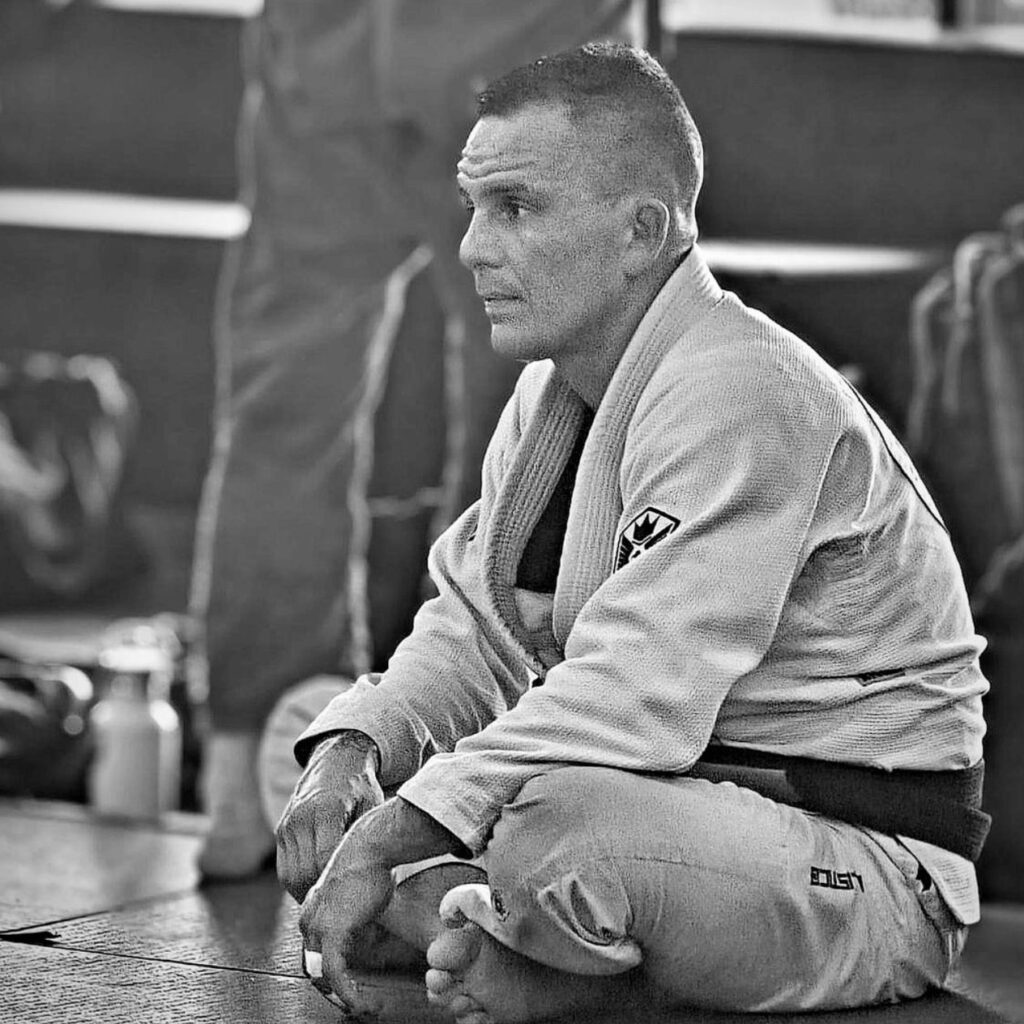WARRIOR’S JOURNEY — FROM ADDICTION TO HEALING WITH JUAN AGULERA
WARRIOR’S JOURNEY — FROM ADDICTION TO HEALING WITH JUAN AGULERA
In the heart of Los Angeles, a remarkable story of transformation is unfolding. Juan Aguilera, a second-degree Gracie Jiu-Jitsu black belt and longtime instructor, is not only a master of physical combat but also a pioneer in the realm of psychedelic therapy for PTSD.
Juan’s story is one of resilience, self-discovery, and the unwavering pursuit of healing. It’s a testament to the power of alternative therapies and the courage it takes to confront one’s deepest fears and insecurities.
In this intimate conversation, Juan opens up about his path from addiction to recovery, the profound impact of ibogaine therapy, and his mission to help others find lasting peace and well-being.
Can you tell us about your childhood and how those experiences shaped you?
My childhood was turbulent. The weight of childhood trauma and the scars of abuse left me feeling insecure and unworthy. I’m inherently a good person, but looking back, I made some harmful choices. I fell in with the wrong crowd, seeking validation in a desperate attempt to fill the void within. I was restless, always pushing boundaries, getting into fights, chasing women… broken inside. I was trying to construct a persona to mask the unspoken burden of trauma.
What were some of the defining moments that led you down that path?
There was so much unprocessed pain and insecurity. I carried the weight of abuse, feeling fragmented. I became an expert at suppressing my emotions, building walls around my heart. One incident that stands out happened while walking home from school. These kids were behind me, and one of them taunted, “Hey, you fucking speak!” The ensuing fight and my arrest launched a pattern of self-destructive behavior. The attention I received was a twisted form of acceptance.
How did you cope with those feelings?
I sought solace in martial arts, finding temporary refuge in the discipline and physicality. But the inner turmoil lingered, and I turned to addiction to numb the pain. I couldn’t function without those pills. It was a desperate attempt to control my external reality, believing that if I could conquer the physical world, I could outrun the internal turmoil. It was a dark period in my life.
When did you realize things needed to change?
I hit rock bottom. Everything was falling apart. I was in utter despair. I remember talking to a friend named Mario, and I just broke down crying. I confessed, “Dude, I’ve covered my whole body with tattoos…” It was a moment of clarity. My life was crumbling, and that’s when I embarked on a journey of self-discovery, exploring alternative therapies like ibogaine and ayahuasca. That’s when I discovered the potential of psychedelics.

How did those experiences impact you?
Through ibogaine and ayahuasca ceremonies, I confronted my buried emotions. The suppressed memories of abuse surfaced with raw intensity. The psychedelics shattered my defenses, forcing me to confront the root of my pain. I realized my addiction was a symptom, not the core issue. True healing required facing the darkness within and allowing myself to feel the full spectrum of my emotions, including the vulnerability I had long avoided. This realization led me to 5-MeO-DMT, which facilitated a profound spiritual awakening. I experienced a complete dissolution of the ego, a merging with the universe that shattered my illusions of control. I emerged transformed, with newfound clarity and deep empathy for others struggling with trauma, especially veterans with PTSD.
And now you use that experience to help others. Tell us about your work with veterans and first responders facilitating 5-MeO-DMT sessions. For those who aren’t familiar, can you explain what it is and how it works?
I guide veterans and first responders through transformative 5-MeO-DMT journeys, offering a safe and supportive space for healing. We often conduct retreats in locations like Cabo San Lucas, Mexico, where we can legally provide this experience. It’s an honor to witness their transformations.
5-MeO-DMT is a naturally occurring psychedelic compound found in certain plants and the venom of the Sonoran Desert toad. It produces a short but incredibly intense altered state of consciousness, often described as a complete dissolution of the self or a sense of unity with the universe. This experience can be incredibly therapeutic, allowing individuals to confront their deepest fears, release past traumas, and gain a new perspective on their lives and struggles with PTSD.


Your work specifically focuses on veterans and first responders. What draws you to this population? What changes have you witnessed in people who have undergone 5-MeO-DMT therapy?
These brave individuals have dedicated their lives to serving others, often facing unimaginable trauma in the process. They deserve access to the most effective healing modalities available. I’ve seen 5-MeO-DMT provide profound relief for those struggling with PTSD, depression, and anxiety, allowing them to reconnect with themselves and find inner peace. It’s been incredible to witness the transformations. People trapped in cycles of trauma and despair are finding freedom and joy. They’re letting go of past hurts, connecting with their inner strength, and experiencing a renewed sense of purpose. Many report significant reductions in PTSD symptoms, anxiety, and depression, with some even experiencing complete remission. The session itself is short, lasting around 15-20 minutes, but the effects can be felt for much longer. Integration is crucial, and we provide guidance and support to help individuals process their experiences and integrate them into their lives.
What’s your vision for the future of psychedelic therapy and what is next for you?
I believe psychedelic therapy has the potential to revolutionize mental health treatment, particularly for veterans suffering from PTSD. As research continues and legal restrictions ease, I hope to see these powerful tools become more widely available. My dream is to create a world where everyone has access to safe and effective healing modalities that allow them to live full and meaningful lives.



